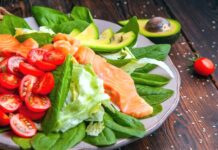Affiliate Disclaimer
Some links in this article are affiliate links. We may earn a small commission if you make a purchase through these links, at no extra cost to you. We only recommend products we find useful to our readersRegularly published research highlights the dangers or advantages of consuming particular foods for health. Information occasionally defies popular belief or contradicts previous studies. Because of this, figuring out which foods improve health is challenging. Every day, you make unconscious food choices you may not even know. A few are well, while others could be better.
We’ll dispel some of the most widely held misunderstandings about nutrition in this post, illuminating the real story behind them. It’s time to clear the air and define what a healthy diet entails. Sorting fact from fiction is essential in developing a better lifestyle, not just a nutritional trivia exercise.
Our dietary decisions affect our wellbeing, energy levels, and physical health. We want to provide readers with factual information so they may make educated decisions about their nutrition by dispelling these myths.
Myth #1 – Carbs Make You Fat
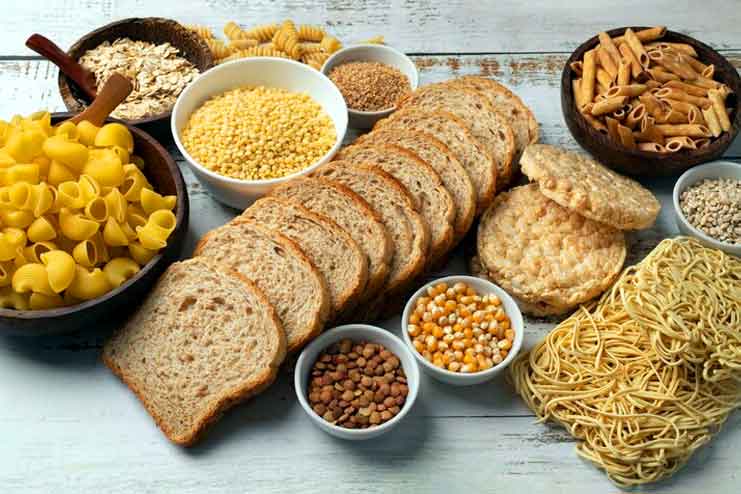

A Body uses carbohydrates as its primary source of energy to power daily tasks and physical activity. The false belief that eating carbohydrates causes fat arises from an incorrect understanding of caloric intake. Numerous foods contain carbs. Your body converts the food we eat into glucose. A body uses glucose as its primary energy source. There are processed carbohydrates with added sugar, called “bad carbs”.
A low-carb diet facilitates weight loss rapidly. On your low-carb diet, you are losing weight but not losing fat. You will regain the weight once you start eating carbohydrates. You can burn more fat and have more energy to crush workouts when your diet has a good balance of carbohydrates.
Body cells can utilize glucose from diet-related carbs as an energy source. Beyond what the body requires for immediate energy, extra glucose is transformed into fat and stored in body fat cells or glycogen.
Related Article: What are Carbs? Important Benefits, Types & Deficiency
Myth #2 – All Fats Are Unhealthy
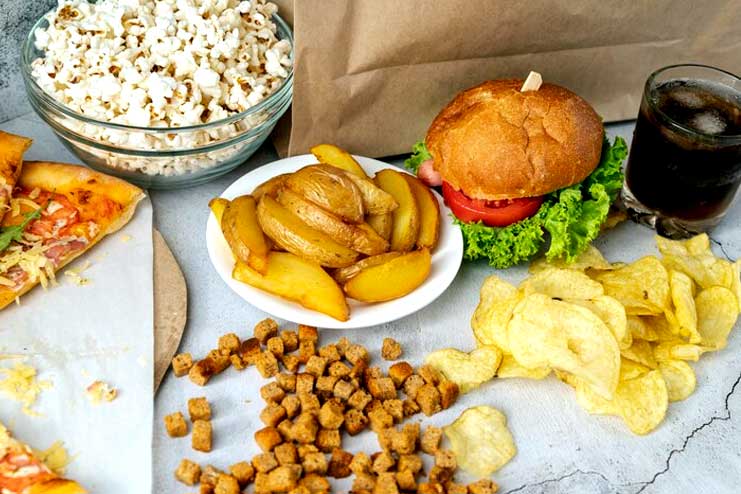

Not every fat is the same. Saturated fat is the primary source of saturated fat in meat and dairy products, and it is linked to cardiovascular disease and clogged arteries. However, by lowering your cholesterol, monounsaturated and polyunsaturated fats—found in plants and good oils—save your health.
The direct impact of fat on blood sugar levels is minimal. It aids in the absorption of specific vitamins and nutrients and is a significant energy source for your body.
Examples Monounsaturated and polyunsaturated fats are of healthy fats that support heart health and general well-being. Trans fats and high saturated fats are unhealthy fats that raise cholesterol and offer health hazards. Select healthy fats from various sources, such as fish, nuts, seeds, vegetables, and unprocessed meats. These include both saturated and unsaturated fats. Steer clear of unhealthy fats like processed meat’s saturated fats and partially hydrogenated oils.
Related Article: Healthy Fats to Eat for a Healthier Well Being
Myth #3 – Skipping Meals Helps with Weight Loss


Losing weight results from skipping meals, which also means cutting calories. There is conflicting evidence regarding the short- and long-term effects of meal cutting on the body. Eating regular meals supports good weight maintenance over time by regulating your metabolism and providing your body with a steady supply of nutrients. Missing meals could result in overindulging in unhealthy snacks or overeating later, making you gain weight.
Our bodies produce more cortisol, making us anxious and ravenous. In addition to slowing your metabolism, missing meals can make it more challenging to lose weight or result in weight gain. You ate anything within two hours of waking up, whether or not you were hungry. Sometimes, during our powered-down state, the body blocks hunger cues overnight, making detecting hunger early in the morning challenging. The meal breaks the fast from the previous night and gives your body the energy and nutrition to go through the day.
Myth #4 – Sugar Is the Root of All Evil
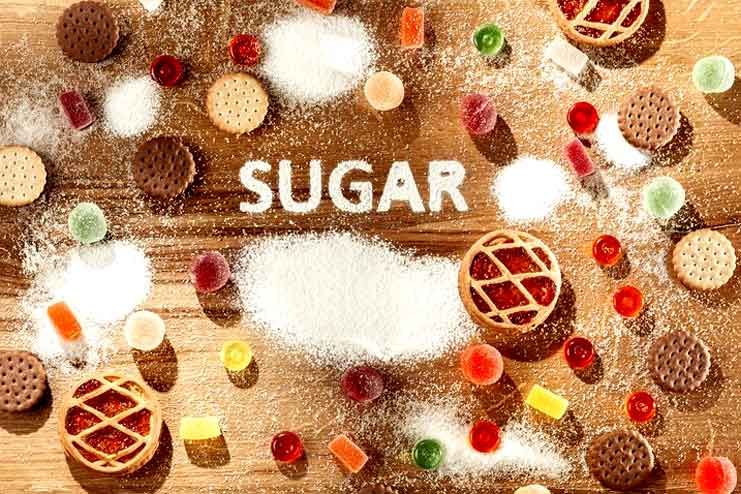

Sugar is only sometimes harmful. In actuality, it’s essential: Sugar powers our body. Much of the carbs consumed by the body are converted into glucose or sugar. Glucose is taken up by the cells from the circulation and used as an energy source. The truth about sugar is that it’s excellent to keep added sugar to less than 10% of your daily caloric intake.
Not every sugar is made equally. Fruits and dairy products’ natural sugars are packed with fiber and other necessary elements to provide a nutrient-dense package that promotes general health. Added sugars, on the other hand, which are frequently found in processed foods and sugary drinks, add extra calories without any nutritional value and may raise health risks.
Contemplate your beverages. Water is a better option for a balanced meal than sugary beverages like soda, lemonade, or sports drinks. A lot of cereals for breakfast are sugar-filled. Consider making the move to cereals with less sugar or none at all.
Related Article: What Happens When You Stop Eating Sugar
Myth #5 – You Need a Detox Diet to Cleanse Your Body


A physical detox is a fantastic idea. Who wouldn’t want to rid their body of poisons as much as possible? Detox diets have gained popularity as a quick fix for purging toxins from our bodies, but are our bodies truly toxic?
Advertisers of diets, supplements, and detoxification products say they may clear your system and offer a host of advantages, including improved digestion, increased energy, less inflammation, and weight reduction. It’s ridiculous from a medical standpoint. The only ways to get healthy are through diet and exercise.
Maintaining proper hydration aids in the kidneys’ removal of toxins, which are eliminated through urine. Additionally, it aids in the bloodstream’s removal of dangerous cell wastes, including carbon dioxide and urea. Water expels toxins from the body using breathing and sweating once filtered from the blood.
Instead of giving in to the temptation of detox diets, we advise readers to concentrate on developing a sustainable and well-balanced food plan. A diet well-balanced and abundant in fruits, vegetables, whole grains, and lean proteins gives the body the nutrition it needs to function at its best and supports its natural detoxification processes.
Related Article: 7 Common Side Effects of Detox
Myth #6 – Gluten-Free is Always Healthier
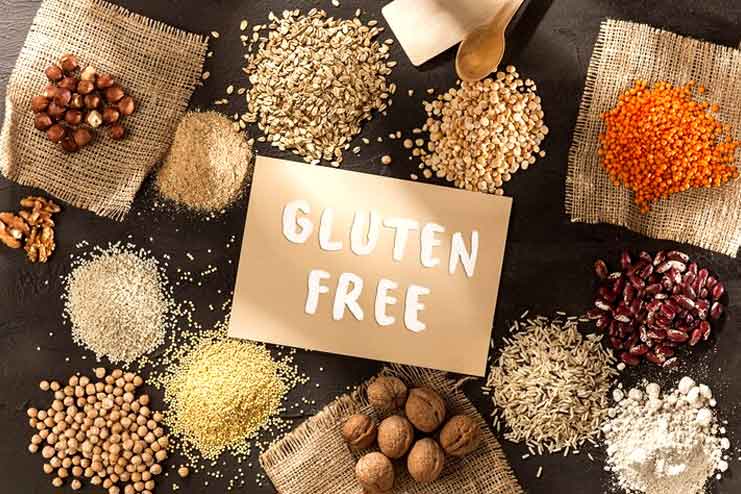

Grains like wheat, barley, rye, and others contain the protein gluten. Individuals choose to follow gluten-free diets for a variety of reasons. For those who have celiac disease, eliminating gluten is imperative. For them, even trace amounts of gluten cause the immune system to misattack the small intestine’s lining, leading to severe sickness and malnourishment.
People with celiac disease must follow a rigorous diet of gluten-free for the rest of their lives. There are fewer disease symptoms and problems when the diet is followed, and cross-contamination is avoided. Non-celiac gluten sensitivity may not be a lifelong issue for some people.
A gluten-free diet is predicated on avoiding foods high in the glycaemic index and low in dietary fiber. These foods are high in fats and simple carbs. Nutritional deficits, constipation, and the onset of metabolic syndrome can result from these circumstances.
Related Article: 15 Less Talked About Symptoms of Gluten Intolerance
Myth #7 – You Can Spot – Reduce Fat
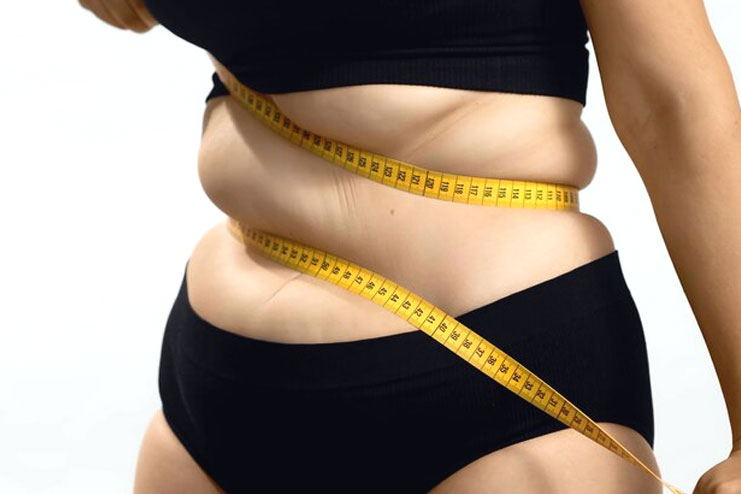

The human body does not follow the idea of spot reduction. Performing incessant crunches or focusing only on arm exercises will not miraculously remove fat from the abdomen. Fat loss is a systemic process impacted by metabolism and total body composition.
Because of the way our bodies work physiologically, spot training is a myth. Genetic predisposition dictates where subcutaneous fat is stored, how it is stored, and which fat reserves are converted to energy in each individual.
When attempting to lose weight, increasing your degree of physical activity aids in your body’s calorie burning. You can lose weight by creating a calorie deficit by burning calories through physical exercise and consuming fewer calories overall.
Your calorie burn is influenced by your exercise level, frequency, and duration. One of the best ways to lose body fat is to engage in aerobic activity, such as brisk walking, for at least 30 minutes most days of the week. For some people, this level of physical activity may not be enough to help them lose weight and keep it off.
If you cannot get in a formal workout on a given day, go up and down the stairs multiple times rather than taking the elevator.
Related Article: 12 Ways to Reduce Visceral Fat – Cut the Flab Away
Myth #8 – More Protein Is Always Better
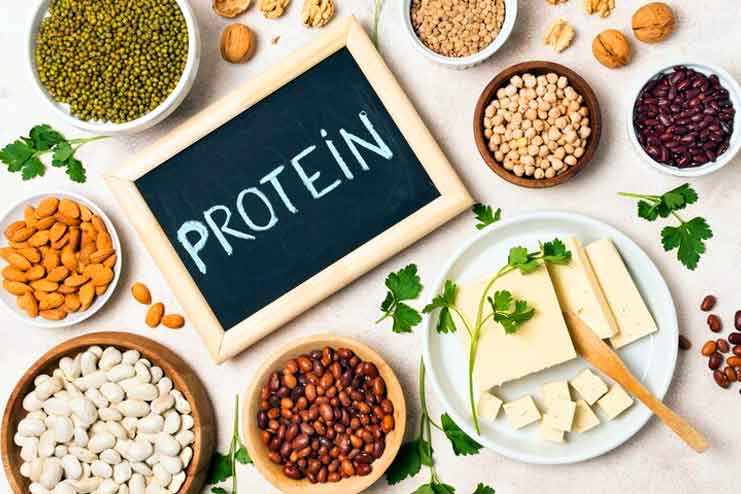

Even though getting enough protein throughout the day is essential, it’s not more protein that causes muscle growth but rather more strength training. It is only possible to gain muscle with the accompanying workout. Since the body cannot store protein, the excess is either burned as fat or used as energy.
An essential component of a balanced diet is protein. Amino acids are used by your body to produce hormones and enzymes to build and repair muscles and bones. They can be utilized as a source of energy as well. Your body requires different amounts of protein based on age, gender, weight, and overall health. Your diet must include protein for your body to create new cells and repair the ones damaged. Protein is also crucial to a child’s, adolescent’s, and pregnant woman’s growth and development.
Daily, 5 ½ oz. of protein-rich meals (meat, chicken, fish, dry beans, and nuts). Serving sizes:
- ¼ cup cooked beans
- 1 tbsp
- Two egg whites or one egg
- 3 oz cooked lean meat, chicken, or fish
Related Article: 12 Roles of Proteins in the Body – Know the Importance
Myth #9 – Organic Foods Are Always More Nutritious
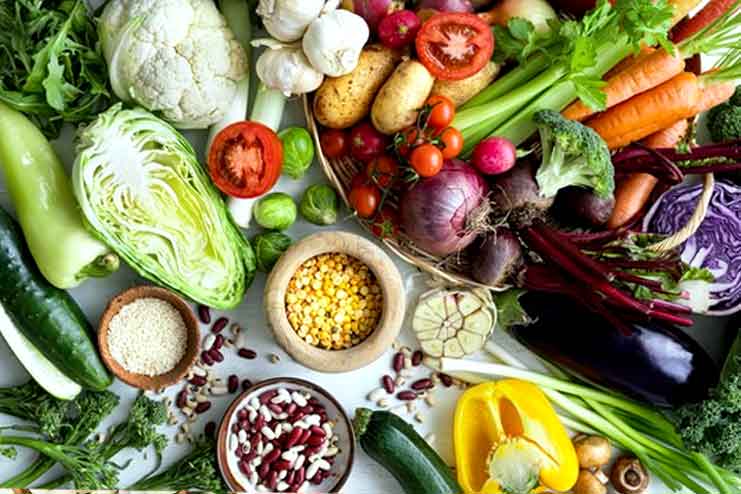

Since many people consider organic food healthier and more ecologically friendly, its popularity has grown recently. A recent study, however, casts doubt on these assertions and implies that the advantages of consuming organic food may be less than previously thought.
Although organic food is grown under strict guidelines that forbid using artificial pesticides, herbicides, or genetically modified organisms (GMOs), the study discovered that these variations in farming techniques do not always result in quantifiable health advantages for consumers.
One of the agricultural sectors with the quickest growth is the organic industry. Preserving the organic composition of the soil is one of the many significant benefits of organic farming. It lessens erosion while safeguarding and enhancing fertility, biodiversity, and soil structure. Additionally, it reduces the possibility of hazardous material exposure for people, pets, and the environment.
A diverse variety of nutrients can be obtained by consuming a broad spectrum of fruits, vegetables, whole grains, and proteins, both conventional and organic. Instead of relying solely on the organic classification, the emphasis should be on a balanced diet that includes foods from several dietary groups.
Related Article: 12 Ways to Spring Clean Your Diet – Time to Switch Things Up
Myth #10 – You Must Count Calories for Weight Loss
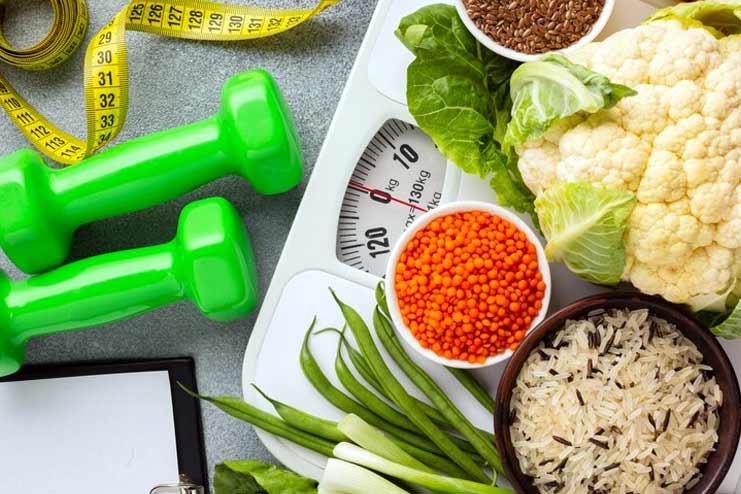

The mythical “calories in, calories out” strategy for weight loss is based on oversimplifying the intricate process of determining energy intake and expenditure. More significantly, it ignores the processes our systems go through to offset a decrease in energy consumption.
Focusing on people’s sensory awareness of the food and their experience, mindful eating is an approach that emphasizes paying attention to our food on purpose, minute by minute, and without passing judgement. It is not particularly related to fat, protein, carbs, or calories.
Portion control refers to selecting a sensible serving size for a specific item. You may reap the nutritional advantages of food without going overboard by practicing portion management. Portion control matters because it benefits you: Eat food more efficiently. Achieve and sustain a healthy weight.
Conclusion
Advertising campaigns and false information frequently foster myths and misconceptions about nutrition. It’s critical to rely on evidence-based information when making dietary decisions and to seek medical advice when necessary.
Remember that there is no one-size-fits-all approach to nutrition; what suits one individual may not suit another.
Our investigation into the labyrinth of the 10 nutrition myths has led us to uncover the truth that lies behind common misconceptions that often distort our view of what makes a healthy diet. With this accurate knowledge, readers are encouraged to make informed dietary selections rather than fall for baseless rumors.
It is essential to be informed. Since nutrition is a dynamic field, staying current on the latest research enables us to adjust our dietary choices to align with the most recent, empirically backed recommendations.


























